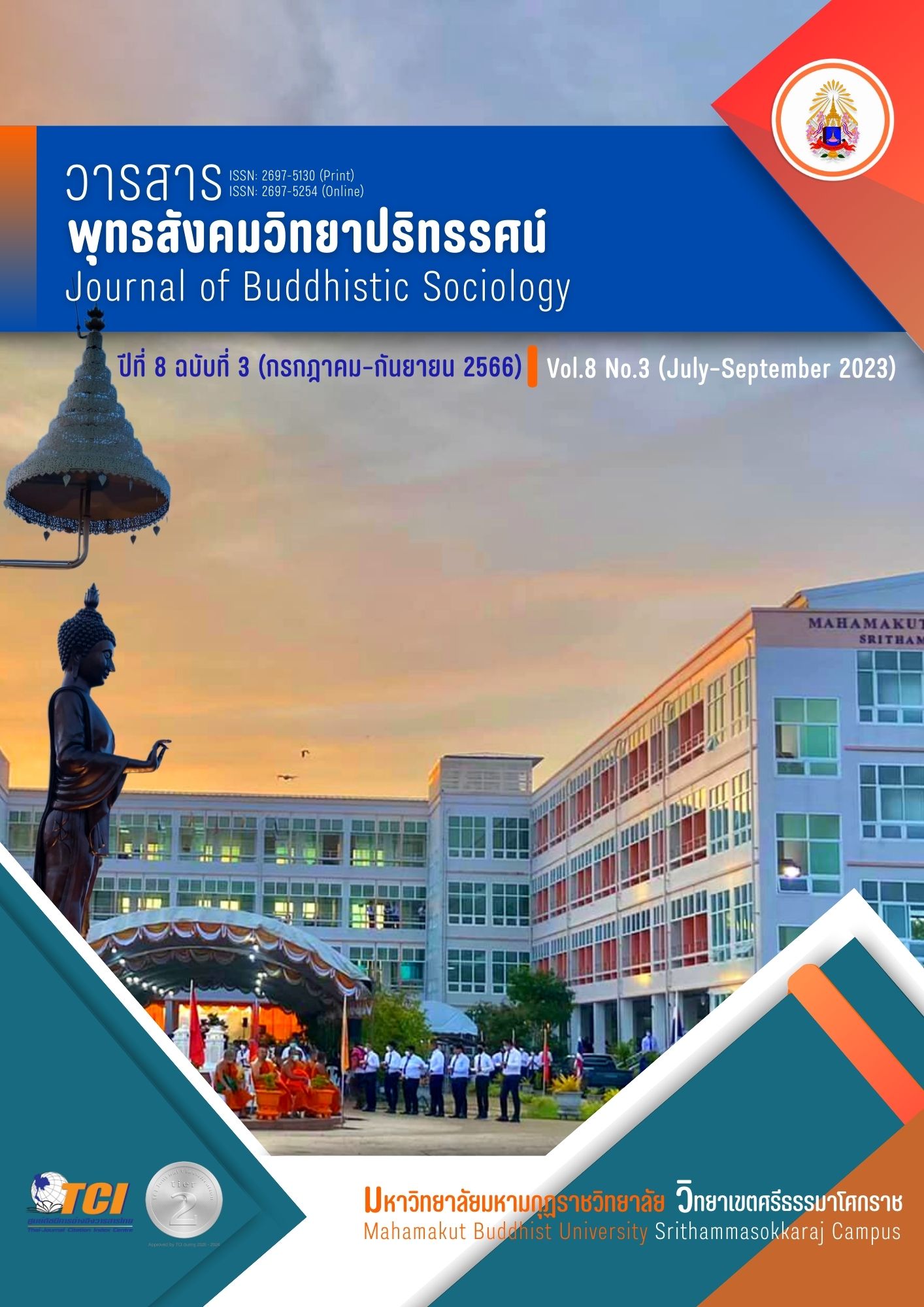DHARMAS OF BUDDHISM TO CURRENT STUDIES
Main Article Content
Abstract
This academic article aims to study the Buddhist educational system that has existed since the Buddha's time as a model in current education and study the Buddhist principles that contribute to the educational system as the pillar with more quintessence of Dharma principles. From the study based on the mentioned objectives, there is a systematic education model in Buddhism, which will be divided into three parts. Firstly, it is a study of the Buddhist scriptures focusing on the theory and principles of Buddhism. The second part is the practice, which applies the theory to real practice to gain actual results, leading to the ultimate goal of practice. The third part is attaining enlightenment, which means the result of practice. When receiving the results of the study and practice, it means that the practitioner has already finished that study and practice. It is the way to take pleasure in the results gained from the practice, which is the advanced duties the practitioner can do and reach the goals. Therefore, it can be seen that systematic education in Buddhism enables students to reach their ultimate goals. Moreover, from the studies of Dharma principles in Buddhism, which is a part to support education, Iddhipada 4: Basis for Success: Passion, Diligence, Mind or Consciousness, and Investigation is a principle that can support learners or those who want to study succeed in education. The educational management model and Dharma principles in Buddhism are the guidelines used for application to fit the current educational management systematically. It is believed that if there is an in-depth study, it will be able to develop more precise results of the Thai education system.
Article Details

This work is licensed under a Creative Commons Attribution-NonCommercial-NoDerivatives 4.0 International License.
References
คณะกรรมาธิการนานาชาติว่าด้วยการศึกษาในศตวรรษที่ 21. (2551). การเรียนรู้ : ขุมทรัพย์ในตนจาก learning : the treasure within (พิมพ์ครั้งที่ 2). กรุงเทพมหานคร: สำนักงานคณะกรรมการการศึกษาแห่งชาติ.
จักรแก้ว นามเมือง. (2555). พระพุทธศาสนากับการศึกษาที่สมบูรณ์. เรียกใช้เมื่อ 10 พฤศจิกายน 2565 จาก https://www.gotoknow.org/posts/444773
พระครูนิพัทธ์กัลยาณวัฒน์ (คะนอง กลฺยาณธมฺโม) และพระศรีโสภณ ปภสฺสโร. (2562). พัฒนาการของการศึกษา. บัณฑิตศึกษาปริทรรศน์ วิทยาลัยสงฆ์นครสวรรค์, 7(2), 297-316.
พระธรรมปิฎก (ป.อ. ปยุตฺโต). (2543). ธรรมกับการศึกษาของไทย. กรุงเทพมหานคร: มูลนิธิพุทธธรรม.
_______. (2545). พระธรรมทูตไทย เบิกทางสู่อารยธรรมใหม่. กรุงเทพมหานคร: มูลนิธิพุทธธรรม.
พระพรหมคุณาภรณ์ (ป.อ. ปยุตฺโต). (2546). พจนานุกรมพุทธศาสตร์ ฉบับประมวลธรรม (พิมพ์ครั้งที่ 12). กรุงเทพมหานคร: โรงพิมพ์มหาจุฬาลงกรณราชวิทยาลัย.
พระสุวรรณา อินฺทโชโต (เหือน) และมานพ นักการเรียน. (2563). การใช้อิทธิบาท 4 เพื่อพัฒนาคุณภาพการ. วารสารมหาจุฬาวิชาการ, 7(3), 97-108.
วิชัย วงศ์ใหญ่. (2557). สี่เสาหลักของการศึกษา. เรียกใช้เมื่อ 10 พฤศจิกายน 2565 จาก www.curriculumandlearning.com/upload/สี่เสาหลักทางการศึกษา_1400078221.pdf
วิทยา พัฒนเมธาดา. (2561). อิทธิบาท 4 กับการศึกษาไทย. เรียกใช้เมื่อ 10 พฤศจิกายน 2565 จาก https://www.kansuksa.com/99/


